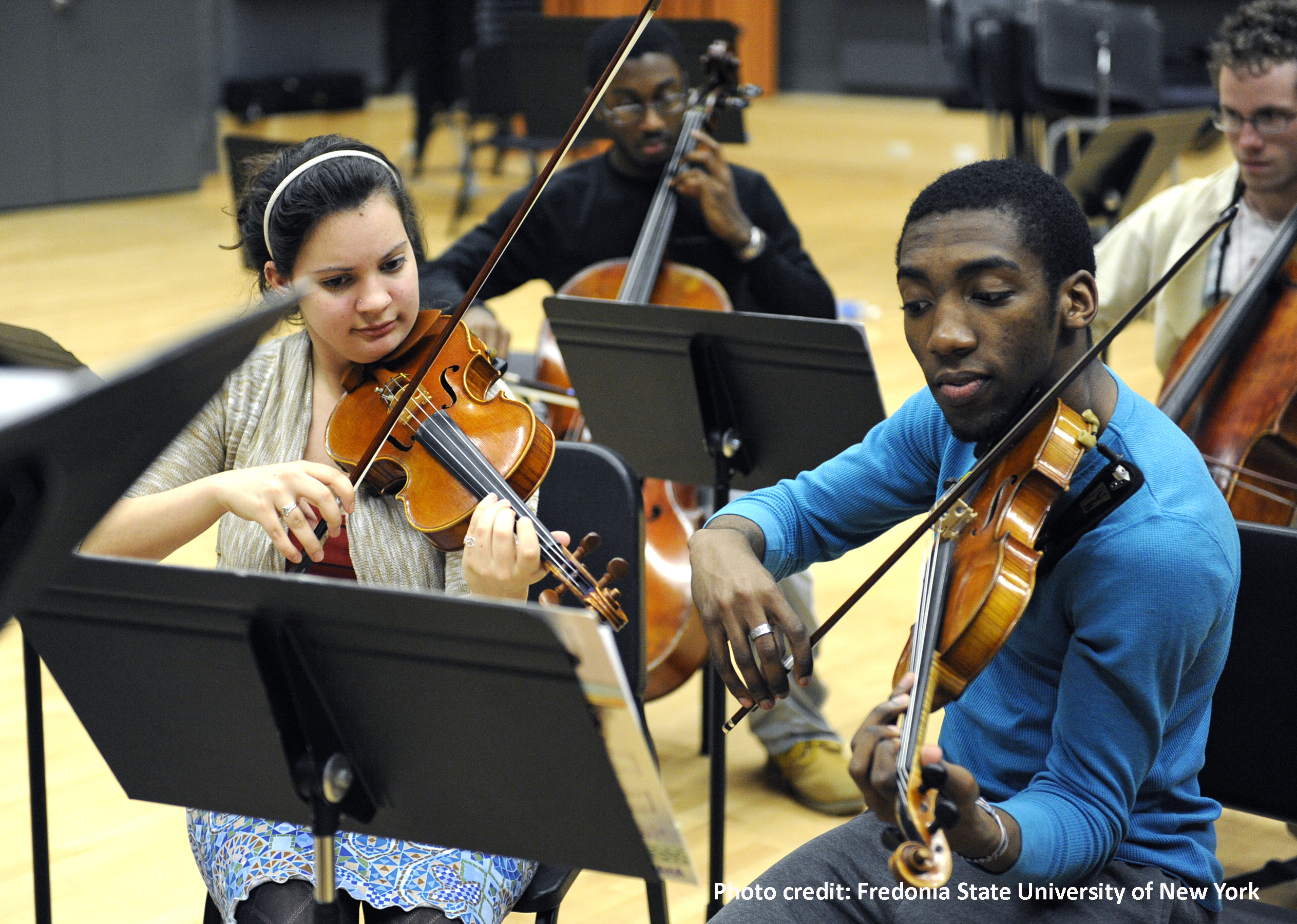Angie Miller — At the Indiana University Center for Postsecondary Research, NSSE may be the most well-known project. However, there are several other related projects that incorporate the "NSSE model" of institutional participation, reporting with comparison groups, and research that is conducted with the aggregate data set to inform institutional improvement and educational policy. One of these projects is the Strategic National Arts Alumni Project (SNAAP), which focuses on graduates in visual, performing, and applied arts. A new article published in Assessment and Evaluation in Higher Education suggests that we need to look beyond income when considering the success of arts alumni.
The rising costs of college and burgeoning student debt have led to an increased emphasis on the money that students earn post-graduation. Arts majors in particular have been under fire for low income levels, especially among recent college graduates. But does income really capture the whole picture when it comes to "success" among graduates? Do we not want graduates to find meaning and fulfillment in their work as well? The findings from this study indicate that institutions need to assess other aspects of occupational experiences, reimagining our understanding of student preparedness and alumni success.
Amber Dumford and Angie Miller authored "Assessing Alumni Success: Income is NOT the Only Outcome!" using data gathered from the SNAAP 2011, 2012, and 2013 administrations, which includes 92,113 alumni from 155 institutions. Using exploratory and confirmatory factor analysis, they found that SNAAP items measure two distinct types of job satisfaction: Intrinsic Satisfaction Aspects and Extrinsic Satisfaction Aspects.
| Intrinsic Satisfaction Aspects | Extrinsic Satisfaction Aspects |
| Work that reflects my personality, interests, and values | Income |
| Opportunity to be creative | Job security |
| Opportunity to contribute to the greater good | Opportunity for career advancement |
While both of these types of satisfaction were significantly related to OVERALL job satisfaction, the magnitude of the relationship for overall job satisfaction was higher for the intrinsic than for extrinsic, suggesting that intrinsic satisfaction may play a larger role in how arts alumni think about their occupational success.
Regression analyses revealed many strong relationships between alumni characteristics and alumni job satisfaction, both intrinsic and extrinsic. Not surprisingly, the strongest predictor of extrinsic job satisfaction was income. In contrast, the strongest predictor of intrinsic job satisfaction was how related their arts training was to the occupation in which they spend the majority of their time. Furthermore, those spending the majority of their work time in arts-related professions reported slightly more intrinsic and somewhat less extrinsic job satisfaction, suggesting that having a job in one's desired field is an important component of satisfaction. While to a small degree, those outside the arts are more extrinsically satisfied, to a much larger degree those in arts-related occupations are more intrinsically satisfied.
Institutions, and indeed society as a whole, "could benefit from the acknowledgement that perhaps one's intrinsic satisfaction plays a larger function in how one conceptualizes his/her occupational success, as compared to extrinsic aspects, and subsequently modify their definitions and assessment of success" (p. 202). While this study focuses on graduates of arts programs, the findings could extend to other fields such as social services, education, and humanities. Students do not expect to make as much money upon graduation, but may be pursuing a career in the field because they enjoy the work or the good that they can do with their degree. Attention to income as a the sole measure of educational quality could have a negative impact on disciplines that are not traditionally associated with financial rewards, despite serving great purpose to society and providing workers with a sense of personal value and fulfillment. Therefore, institutions should convey both intrinsic and extrinsic aspects of job satisfaction when demonstrating evidence of a "return on investment" for education.
Dumford, A.D., & Miller, A.L. (2017). Assessing alumni success: Income is NOT the only outcome! Assessment and Evaluation in Higher Education,42(2), 195-207. doi:10.1080/02602938.2015.1098587.


